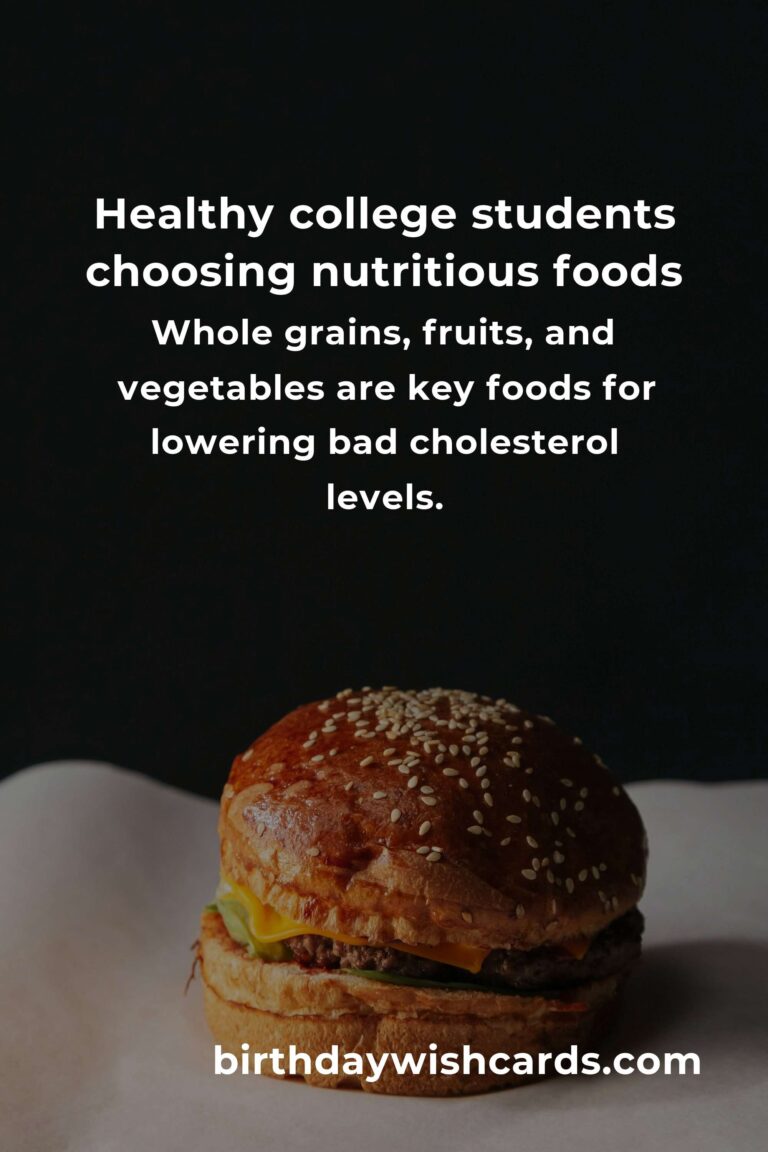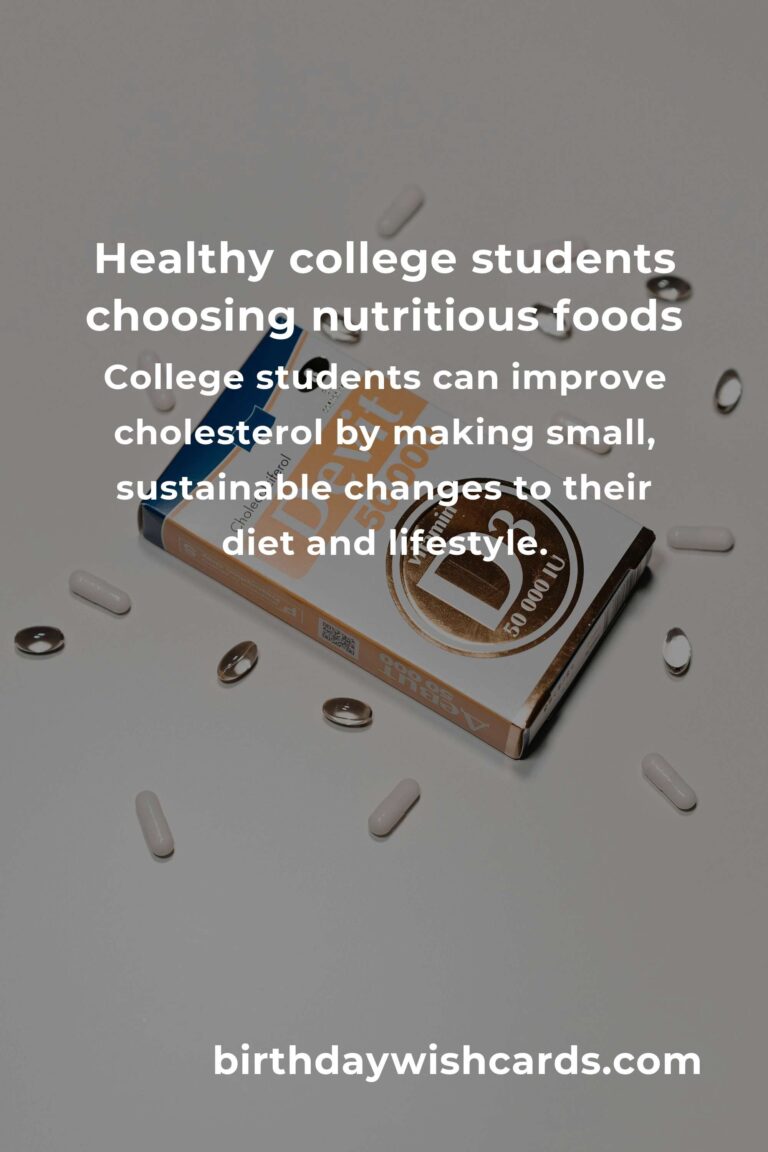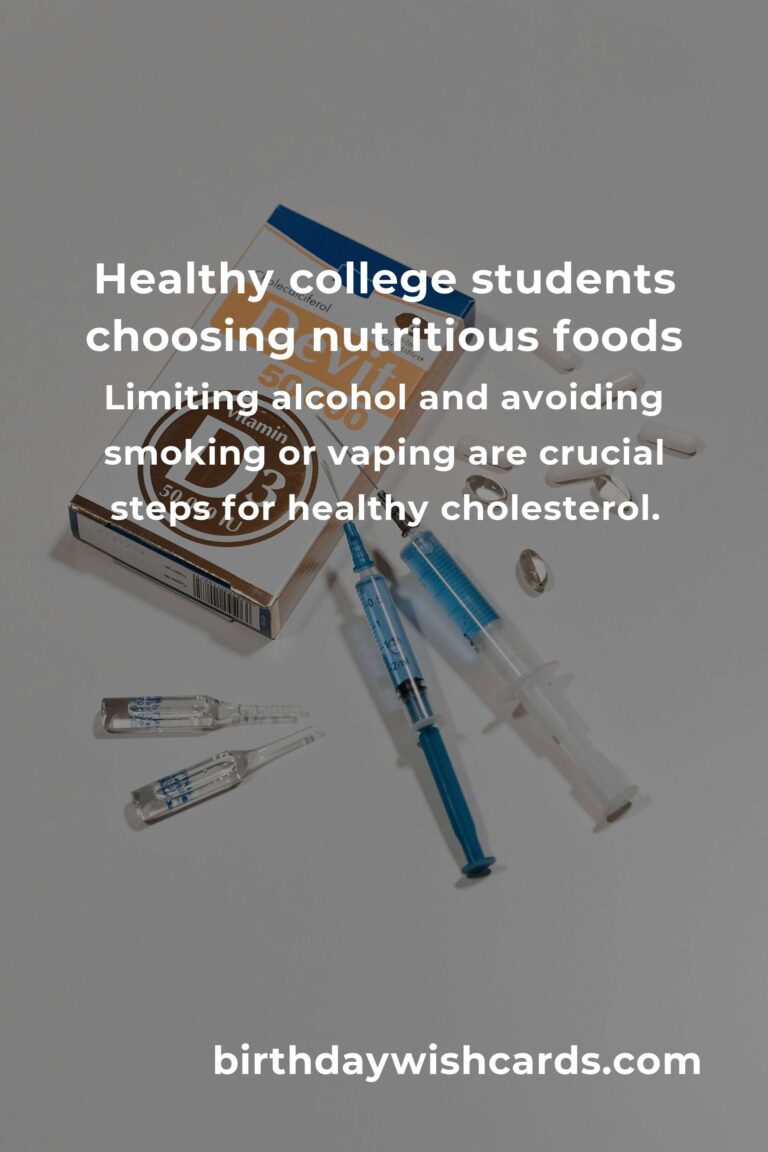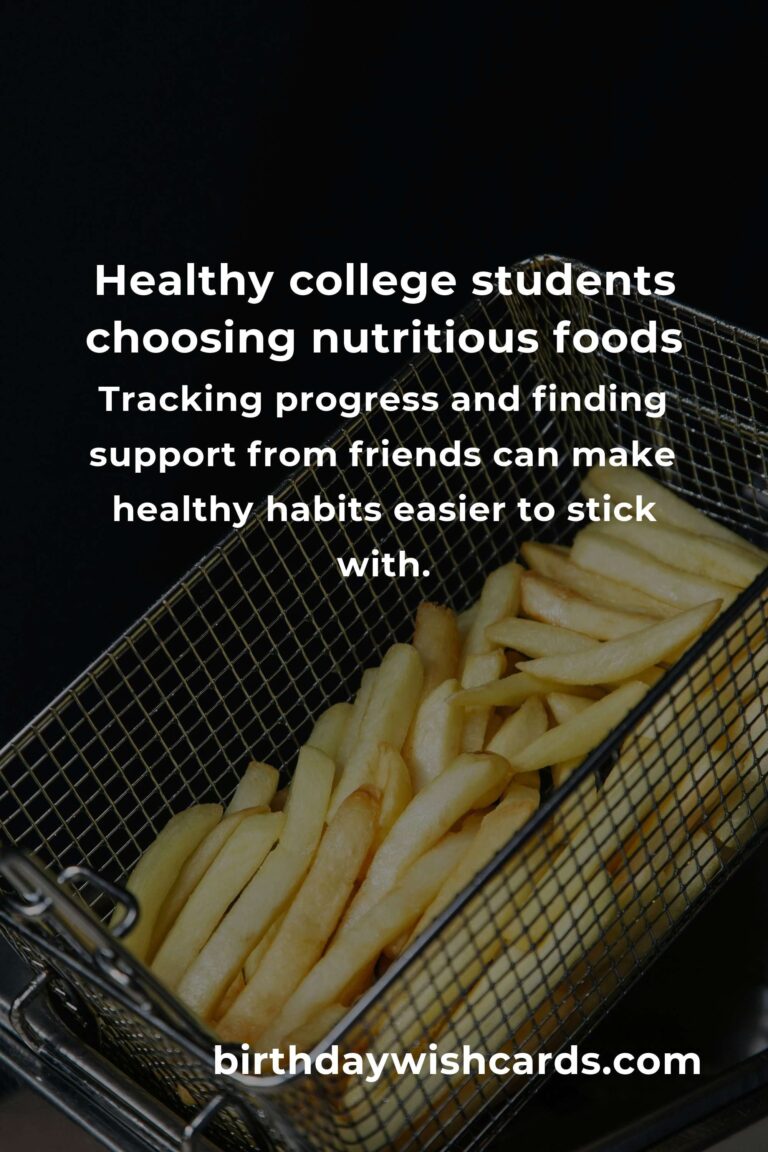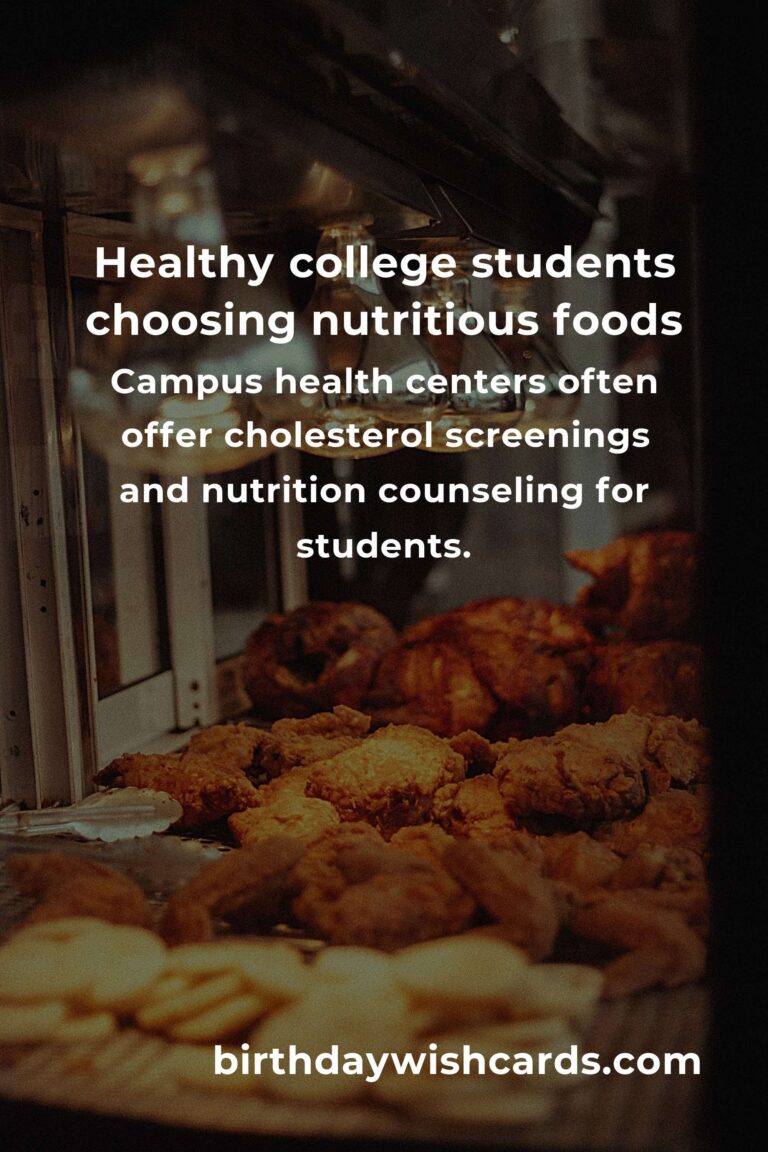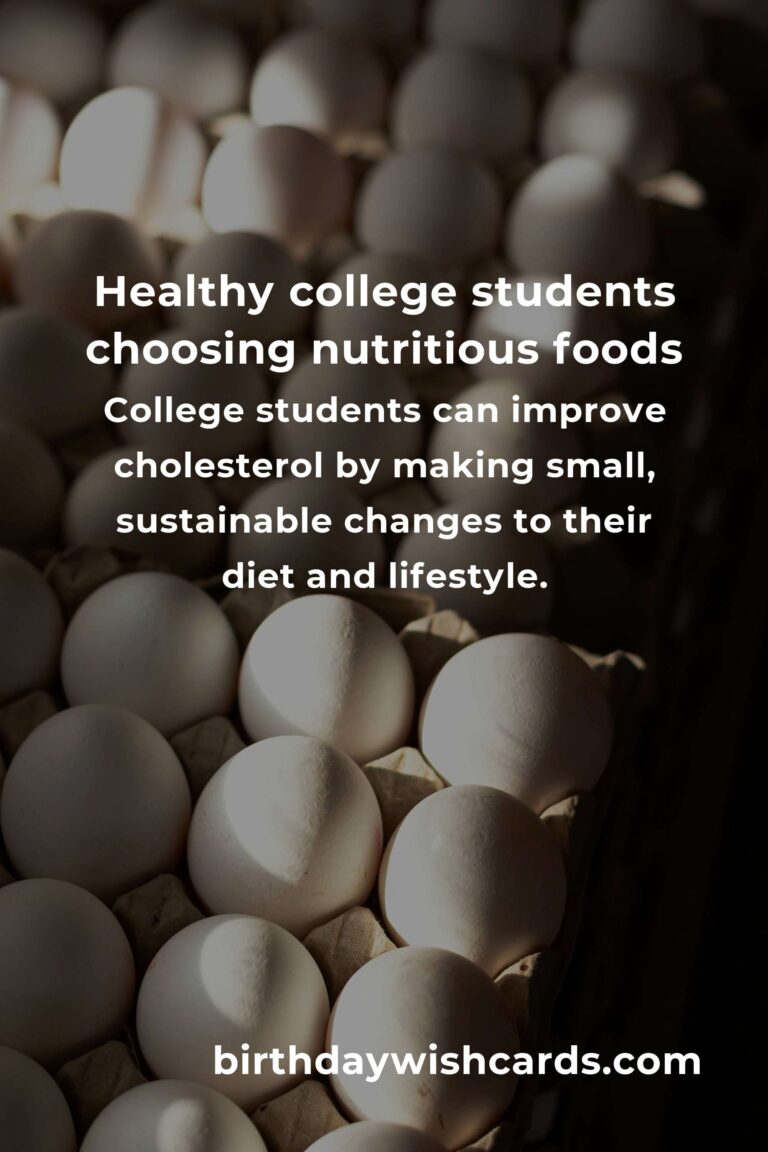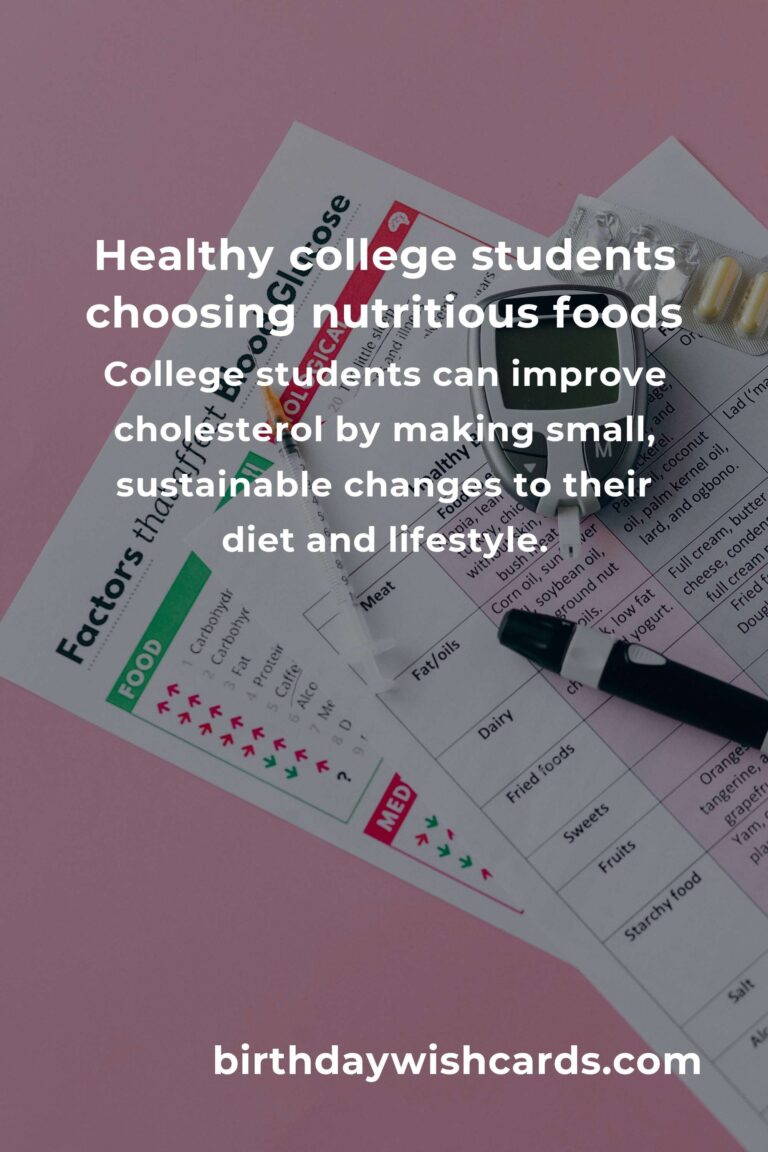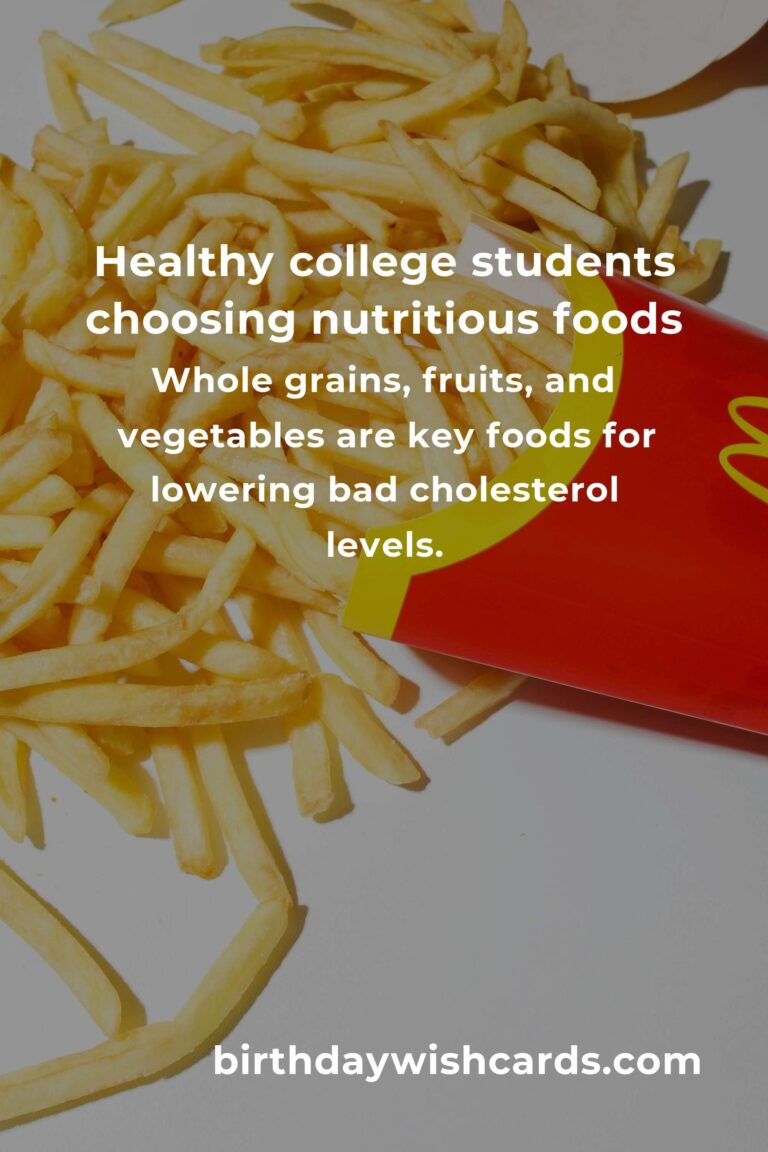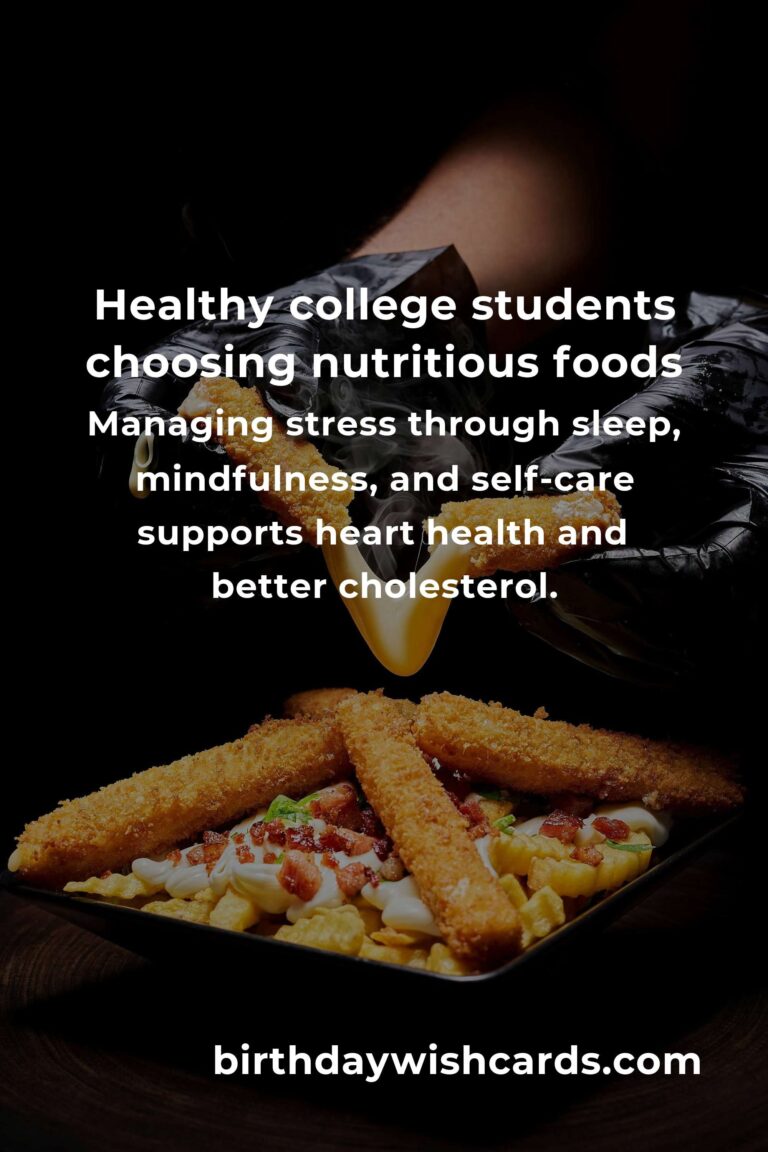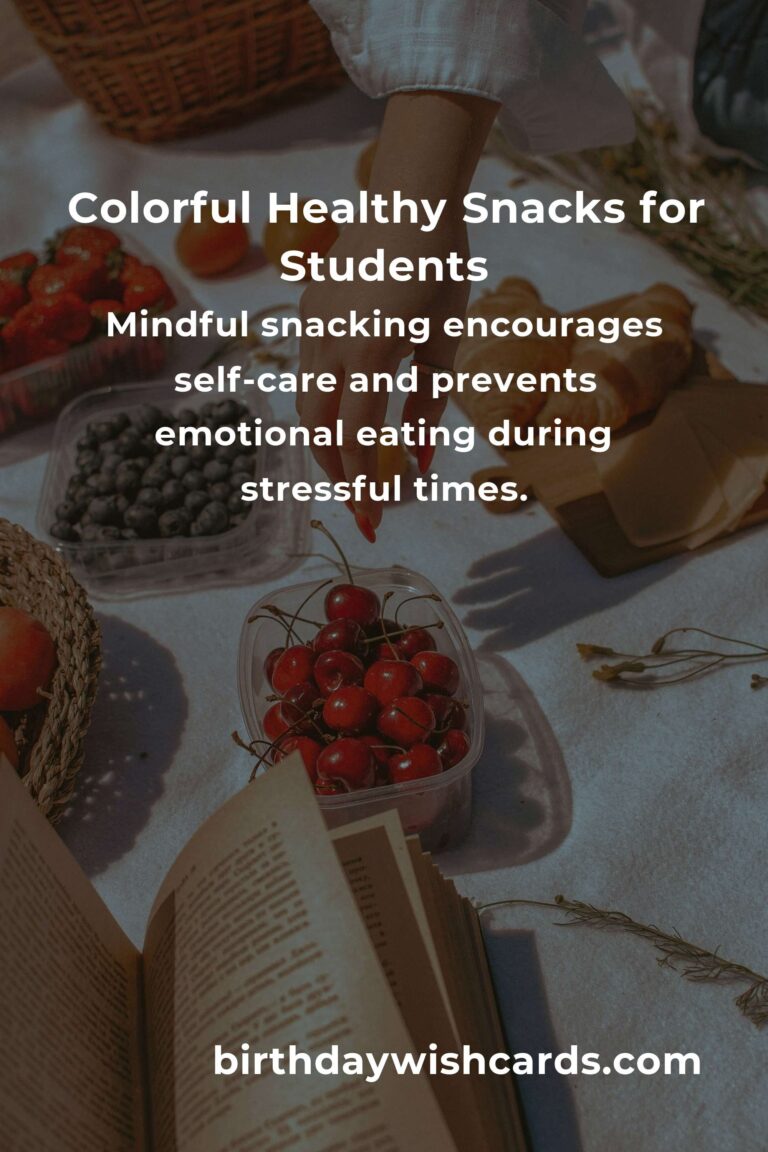
Cholesterol isn’t just something adults need to worry about. As a college student, you’re at a unique crossroads of independence, stress, and lifestyle choices that can have a big impact on your future health. While cholesterol might seem like a distant concern, taking steps now to manage your levels can set you up for a lifetime of heart health. This guide will break down what cholesterol is, why it matters for you, and how to make small, realistic changes—even on a busy college schedule—to keep your cholesterol in check.
Understanding Cholesterol: The Basics
Cholesterol is a waxy, fat-like substance found in your blood. Your body needs it to build cells and produce hormones, but too much of the wrong type can clog your arteries and raise your risk for heart disease. There are two main types:
- n
- LDL (Low-Density Lipoprotein): Often called “bad” cholesterol. High levels can lead to plaque buildup in arteries.
- HDL (High-Density Lipoprotein): Known as “good” cholesterol. It helps remove LDL from your bloodstream.
n
Triglycerides are another type of fat in your blood. High levels, combined with high LDL or low HDL, can increase heart disease risk even more.
Why College Students Should Care About Cholesterol
Most people think cholesterol is only a concern for older adults, but habits formed now can have lifelong effects. College students often face:
- n
- Irregular eating patterns (late-night snacking, skipping meals)
- Fast food and convenience meals high in unhealthy fats
- Stress from classes, jobs, and social pressures
- Lack of physical activity
- Alcohol consumption
n
n
n
n
All these factors can contribute to unhealthy cholesterol levels. By making smart choices now, you can protect your heart, boost your energy, and improve your mood.
Signs Your Cholesterol Might Need Attention
Cholesterol is often called a “silent” problem because it doesn’t cause symptoms until it’s severe. However, you might be at risk if you:
- n
- Have a family history of high cholesterol or heart disease
- Are overweight or obese
- Have high blood pressure or diabetes
- Smoke or vape
- Eat a diet high in processed foods
n
n
n
n
Many college health centers offer basic blood tests—consider getting yours checked, especially if you have risk factors.
Simple Diet Swaps for Better Cholesterol
Eating healthy at college doesn’t mean giving up all your favorites. Small, sustainable changes can make a big difference over time:
1. Choose Whole Grains Over Refined Carbs
Swap white bread, pasta, and rice for whole grain versions. Whole grains contain fiber, which helps lower LDL cholesterol.
2. Add More Fruits and Vegetables
Aim for at least 5 servings a day. Fresh, frozen, or canned (in water) all count. Fruits and veggies are packed with antioxidants and fiber.
3. Go Easy on Saturated and Trans Fats
Cut back on fried foods, processed snacks (like chips and cookies), and fatty meats. Opt for grilled chicken, fish, beans, or tofu instead.
4. Incorporate Healthy Fats
Not all fats are bad! Avocados, nuts, seeds, and olive oil can help raise your HDL (good) cholesterol.
5. Watch Your Portions
Dining hall buffets can be a trap. Use smaller plates, fill up on salad first, and eat slowly to give your body time to feel full.
Meal Ideas for College Students
- n
- Breakfast: Oatmeal with berries and nuts
- Lunch: Grilled chicken salad with olive oil vinaigrette
- Snack: Apple slices with almond butter
- Dinner: Brown rice bowl with beans, sautéed veggies, and avocado
- Dessert: Greek yogurt with honey and walnuts
n
n
n
n
These meals are budget-friendly, easy to make, and packed with nutrients that support healthy cholesterol.
Staying Active on a Busy Schedule
Exercise is one of the best ways to boost HDL (good) cholesterol and lower LDL (bad) cholesterol. The CDC recommends at least 150 minutes of moderate aerobic activity per week. Here’s how you can fit it in:
- n
- Walk or bike to class instead of driving or taking the bus
- Join intramural sports or fitness classes at your campus gym
- Do a 20-minute YouTube workout in your dorm room
- Take study breaks to stretch or do jumping jacks
- Find a workout buddy for accountability and fun
n
n
n
n
Remember, every bit counts! Even small bursts of activity add up over the week.
Managing Stress to Protect Your Heart
College is stressful, and chronic stress can increase cholesterol and blood pressure. Try these strategies:
- n
- Practice mindfulness or meditation for 5–10 minutes a day
- Get enough sleep (aim for 7–9 hours per night)
- Set realistic goals and break big tasks into smaller steps
- Talk to friends, family, or a counselor if you feel overwhelmed
- Take time for hobbies and activities you enjoy
n
n
n
n
Balancing your mental health is just as important as your physical health for managing cholesterol.
Smart Choices When Eating Out or On-the-Go
Between late-night study sessions and busy schedules, eating out is a reality of college life. Here’s how to keep it healthy:
- n
- Choose grilled over fried options
- Ask for dressings and sauces on the side
- Swap soda for water or unsweetened tea
- Order veggie sides instead of fries
- Watch out for hidden calories in specialty coffee drinks
n
n
n
n
Don’t be afraid to ask for modifications—most restaurants are happy to help!
Alcohol, Smoking, and Cholesterol
Both alcohol and smoking can seriously affect your cholesterol and overall heart health. Here’s what you need to know:
- n
- Alcohol: Excessive drinking increases triglycerides and can damage your liver. If you drink, do so in moderation—no more than one drink per day for women, two for men.
- Smoking/Vaping: Both lower your HDL (good) cholesterol and raise your risk of heart disease. Quitting is one of the best things you can do for your health.
n
Supplements and Medication: What You Should Know
Most college students don’t need cholesterol medication. However, some supplements—like plant sterols, fish oil, or fiber—can help if your diet is lacking. Always talk to a healthcare provider before starting any supplement, as they can interact with medications or cause side effects.
Building Lasting Habits: Tips for Success
- n
- Set realistic, achievable goals (like adding one piece of fruit to your day)
- Track your progress in a journal or app
- Find support—join a campus group or share your goals with friends
- Don’t beat yourself up over slip-ups; focus on long-term patterns
- Remember your “why”—better energy, focus, and long-term health
n
n
n
n
When to Seek Help
If you have a family history of high cholesterol, heart disease, or other risk factors, check in with your campus health center. They can offer screenings, nutrition counseling, and support to help you reach your goals. Don’t wait until you have symptoms—prevention is key!
Conclusion: Your Heart, Your Future
Improving your cholesterol isn’t about restriction or perfection. It’s about making choices—one meal, one workout, one day at a time—that support your body and mind. College is an exciting, challenging time, and the habits you create now can set you up for a lifetime of health and happiness. Start small, stay consistent, and remember: your heart deserves your care, today and always.
Frequently Asked Questions (FAQs)
1. Can college students really have high cholesterol?
Yes, especially if you have a family history, are overweight, or have unhealthy eating habits. Early prevention is key.
2. How often should I get my cholesterol checked in college?
If you have risk factors, get checked every 4–6 years, or as recommended by your healthcare provider. Many colleges offer free or low-cost screenings.
3. Are eggs bad for cholesterol?
Eggs are okay in moderation. Focus more on limiting processed foods and saturated fats than on dietary cholesterol from eggs.
4. What’s the best exercise for lowering cholesterol?
Any aerobic activity (walking, running, cycling, swimming) is great. The most important thing is consistency.
5. Is it okay to have cheat days?
Absolutely! It’s about balance, not perfection. Enjoying your favorite foods occasionally is part of a healthy lifestyle.
College students can improve cholesterol by making small, sustainable changes to their diet and lifestyle.
Whole grains, fruits, and vegetables are key foods for lowering bad cholesterol levels.
Regular physical activity, even in short bursts, helps raise good cholesterol and lowers bad cholesterol.
Managing stress through sleep, mindfulness, and self-care supports heart health and better cholesterol.
Limiting alcohol and avoiding smoking or vaping are crucial steps for healthy cholesterol.
Dining hall and fast food choices matter—look for grilled options, veggies, and whole grains.
Building healthy habits now can prevent heart disease and other problems later in life.
Campus health centers often offer cholesterol screenings and nutrition counseling for students.
Tracking progress and finding support from friends can make healthy habits easier to stick with.
Even small changes, like adding a piece of fruit or walking to class, can make a big difference over time.
#CollegeHealth #CholesterolAwareness #HealthyCampus #StudentWellness #HeartHealth #FitCollegeLife #SmartEating #StressFreeStudents #HealthyHabits #CampusWellness


